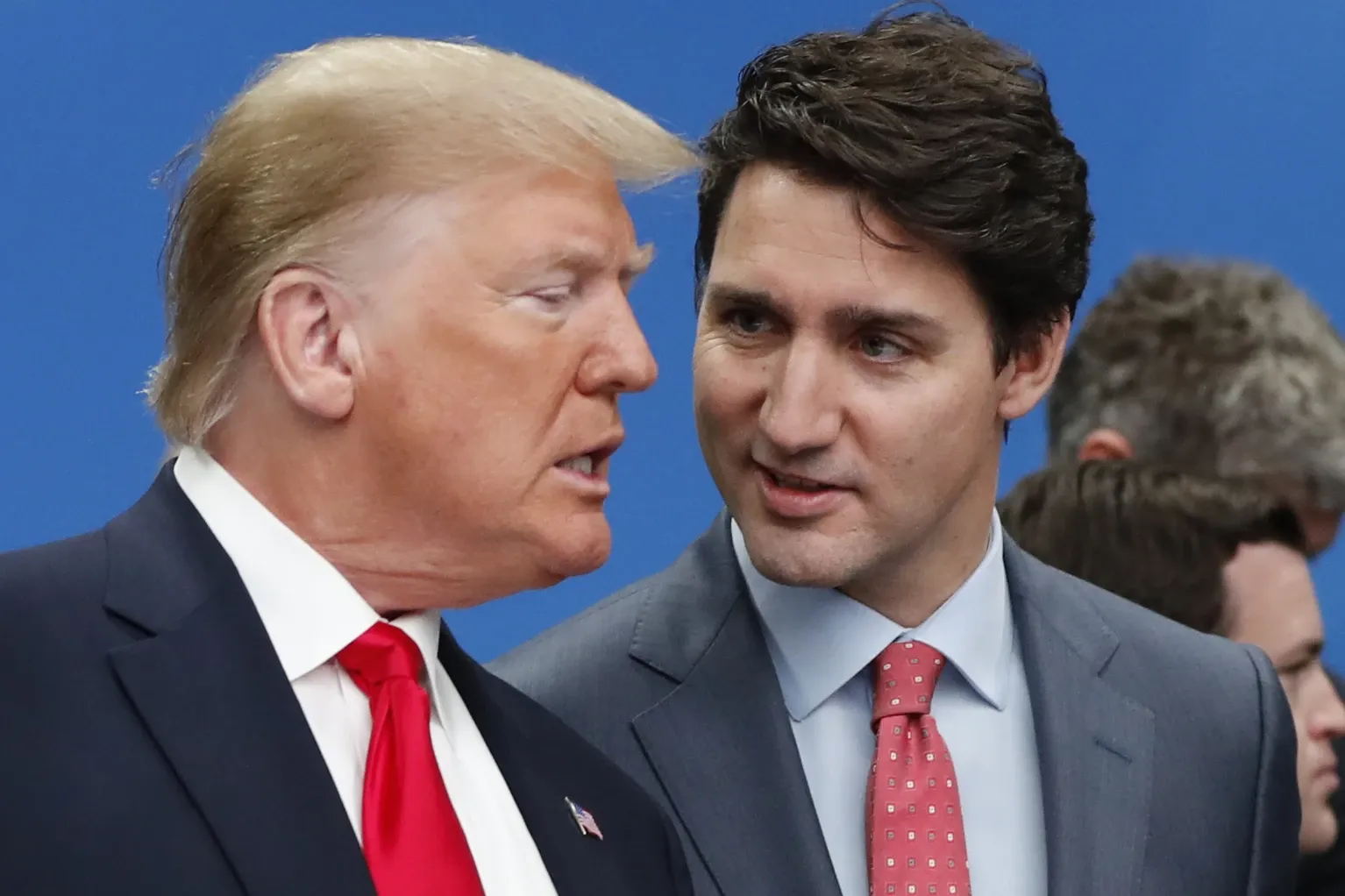Canadian ministers head to Palm Beach for talks with incoming Trump administration
TORONTO (AP) — Two top Canadian Cabinet ministers are visiting Palm Beach to talk border security and trade with the incoming Donald Trump administration as Trump threatens tariffs on all Canadian products.

FILE - U.S. President Donald Trump, left, and Canadian Prime Minister Justin Trudeau talk prior to a NATO round table meeting at The Grove hotel and resort in Watford, Hertfordshire, England, Dec. 4, 2019. (AP Photo/Frank Augstein, File)
New Finance Minister Dominic LeBlanc and Foreign Minister Mélanie Joly will be in Palm Beach, Florida on Thursday for the talks this week, said Jean-Sébastien Comeau, a spokesman for LeBlanc.
LeBlanc said last week he would meet with Tom Homan, Trump’s incoming “border czar,” after Christmas to discuss Canada’s plan to secure the border as part of a bid to avoid the sweeping tariffs.
Comeau said LeBlanc and Joly “look forward to building on the discussions that took place when the Prime Minister met with President Trump at Mar-a-Lago last month, as well as the positive call the Ministers held with Mr. Tom Homan earlier this month.”
“The Ministers intend to focus on Canada’s efforts to combat fentanyl trafficking and illegal migration and the measures outlined in Canada’s Border Plan, as well as the negative impacts that the imposition of 25% tariffs on Canadian goods would have on both Canada and the United States," Comeau added in a statement.
The Trump transition team did not immediately respond to a message seeking comment.
Trump keeps calling embattled Canadian Prime Minister Justin Trudeau the governor of the 51st state and has threatened to impose sweeping tariffs if Canada does not stem what he calls a flow of migrants and drugs in the United States — even though far fewer of each cross into the U.S. from Canada than from Mexico, which Trump has also threatened.
Canada has a billion-dollar plan to increase security at the border. LeBlanc last week he discussed parts of the plan with American officials and is optimistic, but said they have a lot of work ahead.
Trump has also made an issue of the U.S. trade deficit with Canada, erroneously calling it a subsidy.
Canada’s ambassador to Washington, Kirsten Hillman, has said the U.S. had a $75 billion trade deficit with Canada last year. But she noted a third of what Canada sells into the U.S. are energy exports and said there is a deficit when oil prices are high.
About 60% of U.S. crude oil imports and 85% of U.S. electricity imports are from Canada.
Nearly $3.6 billion Canadian dollars ($2.7 billion) worth of goods and services cross the border each day. Canada is the top export destination for 36 U.S. states.
Flows of migrants and seizures of drugs are vastly different at the U.S.'s two land borders. U.S. customs agents seized 43 pounds of fentanyl at the Canadian border during the last fiscal year, compared with 21,100 pounds at the Mexican border.
Most of the fentanyl reaching the U.S. — where it causes about 70,000 overdose deaths annually — is made by Mexican drug cartels using precursor chemicals smuggled from Asia.
On immigration, the U.S. Border Patrol reported 1.53 million encounters with migrants at the southwest border with Mexico between October 2023 and September 2024. That compares to 23,721 encounters at the Canadian border during that time.